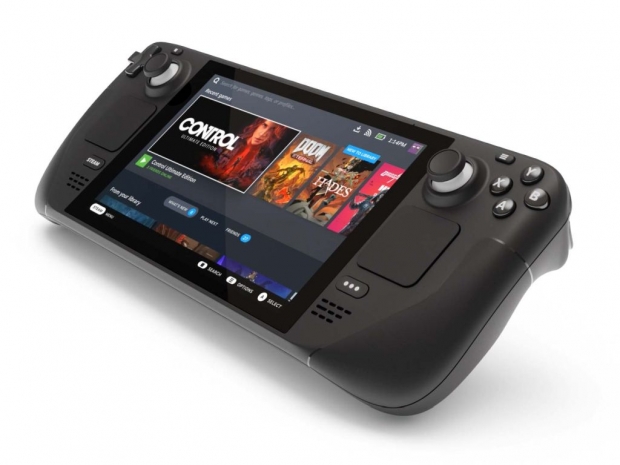Obviously aimed at the Nintendo Switch market, the Valve Steam Deck, which was also known under its codename as the SteamPal, looks like a pretty decent handheld console, measuring at 298x117x49 and weighing in at around 669g.
All about handheld gaming
It packs a custom AMD APU with Zen 2 CPU and RDNA 2 GPU, which should have no trouble running most games at reasonable graphics settings on its 7-inch 1280x800 resolution touchscreen.
According to what we could gather, this is a standard LCD touchscreen with a 60Hz refresh rate and 400nits of typical brightness.
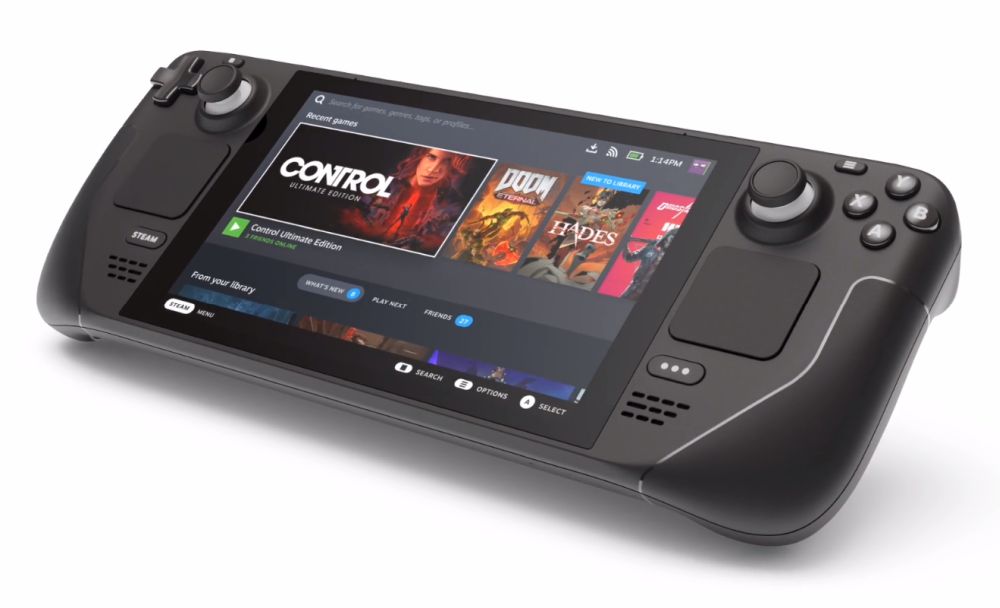
According to Valve, the Steam Deck is "optimized for hand-held gaming" with full-sized controls, including thumbsticks, trackpads, directional, and XYAB, triggers, bumpers, and other buttons. Of course, this is complemented by the touchscreen as well as 6-axis Gyro controls.
According to Valve, these two square trackpads with haptic feedback should provide 55 percent better latency compared to the Steam Controller.
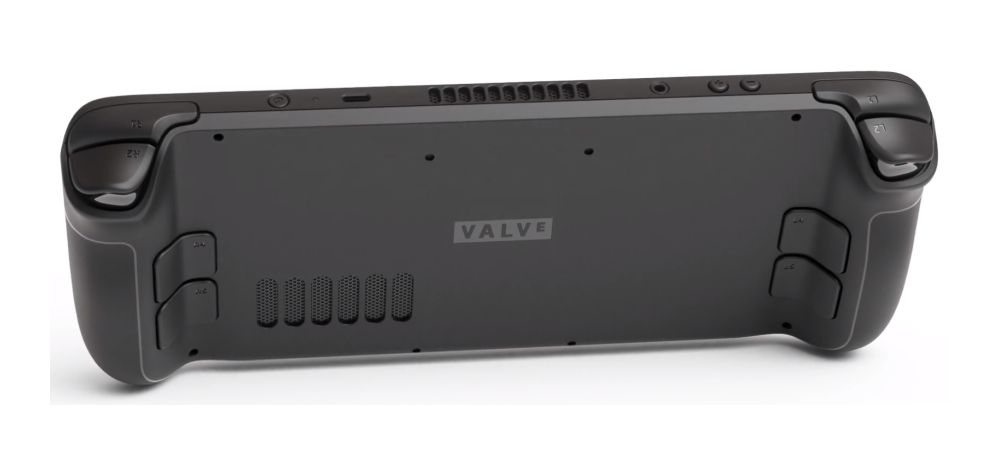
AMD's custom APU should pack quite a punch
Specification-wise, the 7nm AMD custom APU is the most powerful low-power APU up to date. It comes with a 4-core/16-thread Zen 2 CPU, clocked at 2.4GHz base and 3.5GHz Boost clocks, providing up to 448 GFLOPs of FP32 compute performance.
The GPU is based on RDNA2 architecture, with eight RDNA2 Compute Units, or a total of 512 Stream Processors, which is in line with Xbox Series X or the Playstation 5.
The GPU works between 1.1GHz and 1.6GHz, has a compute performance of 1.6TFLOPs, and has 16GB of total memory as it uses a unified memory with an LPDDR5 memory controller.
To our big surprise, the TDP is set between 4W and 15W, so we expect clocks to be significantly lower when it works in battery mode, and a much higher performance boost when it is plugged in.
Valve has prepared three different storage options, including 64GB eMMC (PCIe Gen2 x1), 256GB NVMe SSD (PCIe Gen3 x4), and the high-speed 512GB NVMe SSD (PCIe Gen3 x4).
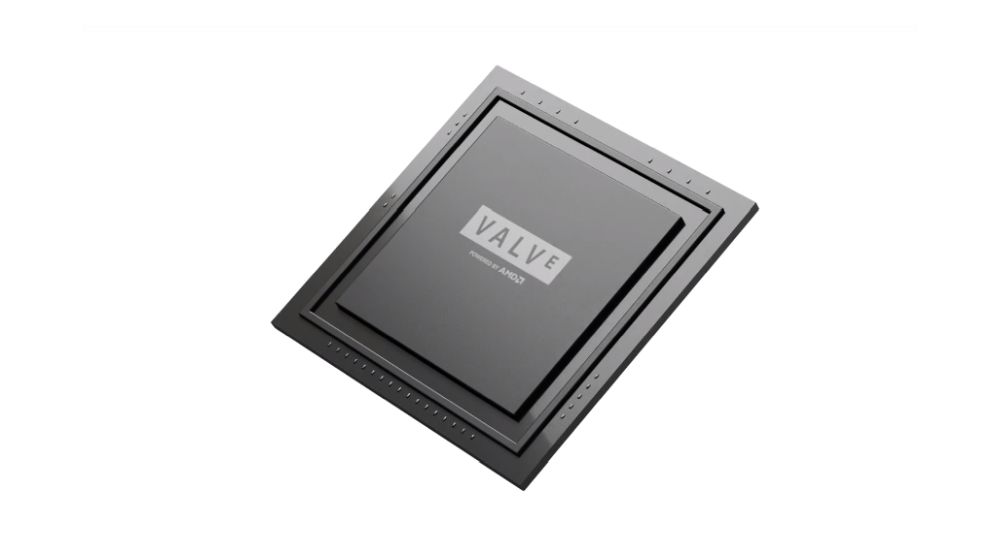
Great connectivity, decent battery, and dock
Valve has given the Steam Deck both Bluetooth 5.0, with support for controllers, audio, and accessories, as well as the dual-band 802.11ac 2x2 MIMO WiFi. You also get a 3.5mm stereo headphone jack, and USB Type-C port, which is used for charging as well as a dedicated DisplayPort output.
The Steam Deck comes with a 40Whr battery, promising between two and eight hours of gaming, depending on how hard you push it, or simply, which games are you playing.
Valve has also confirmed it is working on a dedicated dock for the Steam Deck, which will add an Ethernet port, and most like HDMI and/or DisplayPort, as well as USB connectivity.
The rest of the specifications include a microSD card slot, stereo speakers with embedded DSP, dual-array microphones, and an ambient light sensor. It will run on a new version of Steam OS, the Steam OS 3.0, and Proton, a dedicated layer on top of the Steam OS which will allow most of the games to be playable on the system. So far, Valve has hinted that it could also get access to the EPIC Game Store as well.
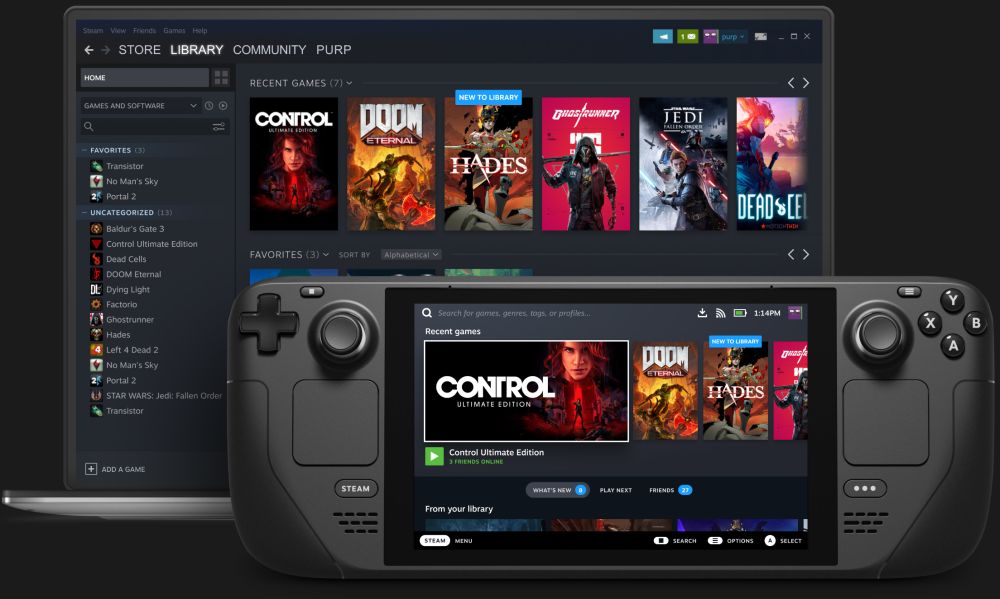
Shipping in December 2021, and starting at $399
According to details provided by Valve, the Steam Deck should start shipping in December 2021, with the cheapest version starting at $399. The other two storage options will go for $529 and $649, which is not half bad, considering these are proper SSDs. Reservations will open tomorrow, and the console will be available in "select regions" for now, including the US, Canada, the EU, and the UK.
You can check out more over at Valve's dedicated Steam Deck website.
Introducing Steam Deck: powerful, portable PC gaming starting at $399. Designed by Valve, powered by Steam. Shipping December 2021.
— Steam (@Steam) July 15, 2021
Learn more at https://t.co/ZOTx3KUCVK and reserve yours tomorrow. #SteamDeck pic.twitter.com/jcgbaKfT9c

